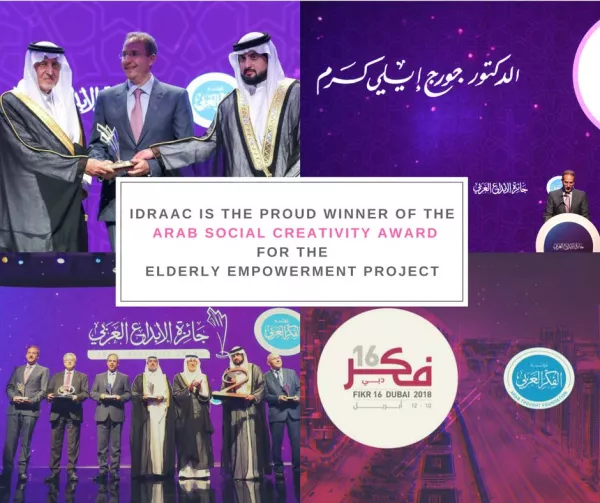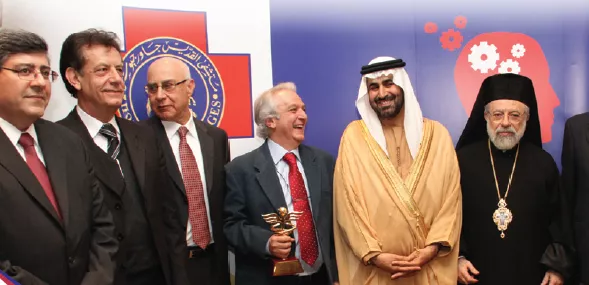Elderly Mental Health
Elderly Mental Health
IDRAAC is working on different research projects related to elderly mental health.
These projects aim at investigating the prevalence of disorders among elderly age groups and their correlates as well as validating scales that detect dementia, depression and anxiety among the elderly. These studies are being used to prioritize and design community interventions and advocacy activities related to the elderly in Lebanon.
The TEC-MED Project (Development of a transcultural, social-ethical care model for dependent populations in the Mediterranean Sea Basin)
The TEC-MED Project (Development of a transcultural, social-ethical care model for dependent populations in the Mediterranean Sea Basin) is a project that is being implemented in 6 different countries around the Mediterranean Sea: Spain, Italy, Greece, Lebanon, Egypt, and Tunisia funded by the European Union targeting 28,000 (4,700 per country) caregivers and elderly people (aged 64+) who are dependent and/or at risk of social exclusion.
The TEC-MED project is developed based on the TEC-MED Model which is a model of care developed through different countries’ collaboration and includes: Subject of care , Health and social care providers, Care environment and Service delivery, Governance, Financing, Technology.
In order to pilot the TEC-MED Model in Lebanon and other countries, an online platform will be established and accessed through mobile, tablet and desktop. This online platform will serve as one tool to implement the social care model among older adults and a group of professionals (training agents) working with older adults in public and private practice who will be trained on the use of the platform.
Training agents will be expected to use this platform with older adults and their caregivers in order to assess the status of older adults, recommend measures to improve their status and follow-up on the implementation of these recommendations by the older adults and their caregivers.
The TEC-MED assessment will be performed using different scales assessing 8 different dimensions which are integrated within an online platform:
1. Health condition.
2. Physical-functional capacity.
3. Cognitive ability.
4. Basic needs.
5. Emotional management and social relations.
6. Ability to promote a healthy life/death.
7. Family, partners and caregivers.
8. Socio-economic determinants
The assessment will be performed by Training Agents (TA), in which each country will have 6 training agents performing both the assessment and the follow-up sessions. The training agent is expected to be a professional (social worker, nurse, …) who will be trained on implementing the model and in turn will be able to train others in the future.
Depending on the results of the assessment, persons will be referred to the needed interventions.
The interventions of the project will be adapted to each country and will be of three types:
- Referral to Services
- Capacity Building in which educational materials will be provided and as well uploaded on the online platform of the project to help expand the knowledge of the elderly and their caregivers.
- Support Groups
The follow-up sessions will take place twice after the initial assessment, the first follow-up session will be performed after 3 months of the first assessment, and the second will be performed after 6 months of the first assessment. The aim of the follow-up sessions is to evaluate the effect of the interventions that will be implemented.



